Austin Dog Alliance improves the lives of individuals and families through programs based on the canine and human bond.
Can a dog help a child who’s a bit of an introvert, or maybe has trouble learning to read? Along with their Hounds for Heroes training program which provides service dogs for veterans and first responders, Austin Dog Alliance has found a variety of ways for dogs to make life better for their owners.
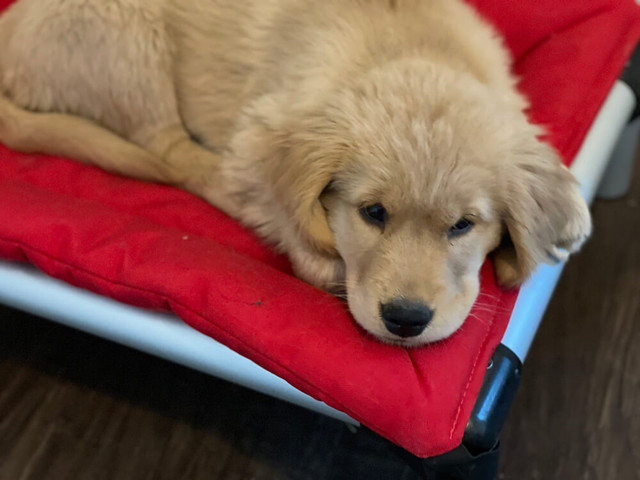
We use (Kuranda Beds) in our homes and at work. I am a huge fan! I have 5 in my home and 2 in my office. We also have them in every kennel.
An interview with Debi Krakar, Founder of Austin Dog Alliance:
We last wrote about Debi Krakar and her Austin Dog Alliance back in 2015. We thought we’d pay her a visit to see how she’s been doing and how she fared through the Covid crisis.
Kuranda: Can you give me an overall description of your business and how it evolved into what it is today?
Debi Krakar: We started as a small group of volunteers doing after-school programs, dog rescue, and working with therapy dogs. We had $80 in seed money, big ideas, and a lot of energy. After 17 years, we have grown into an organization with a 7-acre property, 2 buildings, and 14 employees. We work with about 2,000 students each year, and now that Covid’s more manageable, we will touch over 20,000 people a year with our various programs.
Kuranda: What are your most important/successful programs?
Debi Krakar: After 8 years of pursuing full accreditation by Assistance Dogs International, we obtained our goal in 2021. Currently, there are only 144 organizations worldwide that have achieved this status. Only 18 of us will work with a client to train their own service dog for disabilities related to mental health and or mobility.
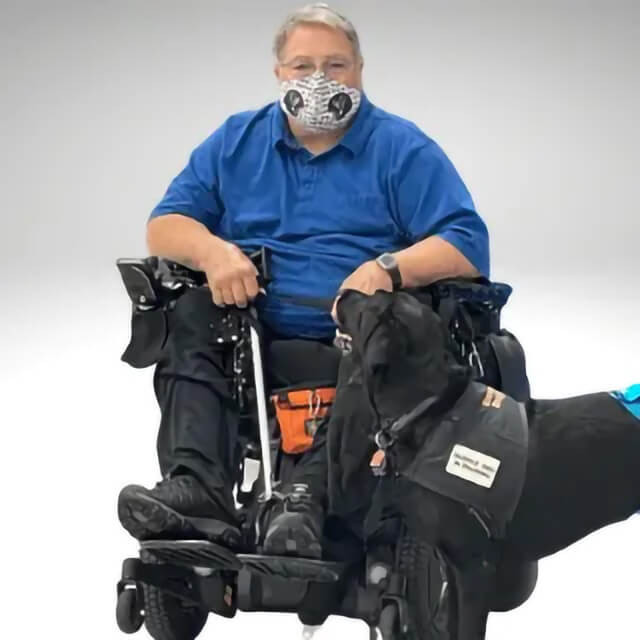
Kuranda: I see you offer a wide variety of training courses for a fee. Is the Dog Alliance a non-profit organization?
Debi Krakar: It is all non-profit. Nowadays, a nonprofit has to prove that we have multiple sources of income to be viable. If you’re going to donate to an organization, you want to know they have a structure and that they can continue to pay their staff and pay their bills even when the economy goes through a recession or a pandemic hits. Having some fee-based programs provides us with that stability.
We provide fee-based classes for families with pet dogs, but in those same classes, will be a veteran enrolled for free, with the goal of being a service dog team. Many of our families training their pet dogs will be inspired to serve others and eventually become a volunteer therapy dog team that visits hospitals, nursing homes, schools, and libraries.
Kuranda: When you participate in the Train Your Own Dog program, are these people with PTSD?
Debi Krakar: Correct.
Kuranda: What is a Responder Dog?
Debi Krakar: We are working on a program to develop an elite team of therapy dogs who have a lot of experience, and we know will be solid in a variety of situations and that the handler has been taught a lot about trauma and incident command structures so they can go out with first responders on calls. If there’s a big fire, a dog will be qualified to be there to support the firefighters as well as the victims of the fire. Here in Texas, there was a tornado which was very stressful for the community. These dogs would be qualified to be at the tornado resource center after the event.
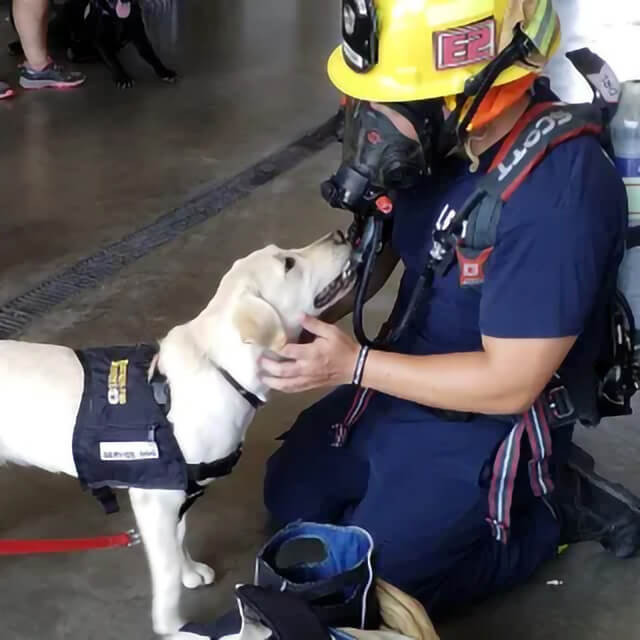
Kuranda: How many dogs can you train in a year?
Debi Krakar: We work with about 2000 students a year. Approximately 30 are training their own service dog or one of our dogs that will be placed with a veteran when they are fully trained at 22 months. We work with about 75 families each year who aim to become a therapy dog team that will volunteer to serve others.
Kuranda: How many children do you have participating in their summer camps?
Debi Krakar: In summer, we’ll host 400 children with their dogs. (400 over the 10-week summer, not all at once!). It’s a wonderful experience. Many children aren’t into sports or are shy and usually don’t enjoy traditional camps. At the Dog Alliance summer camp, they come to camp with a built-in buddy, their dog, and they have an instant topic to discuss with other campers. It’s good for self-esteem building because the dogs learn, and the child is successful. We are also teaching the children how to respect and care for dogs. It’s also great for kids to develop friendships and have a good time. The child and the dog both go home exhausted each day.
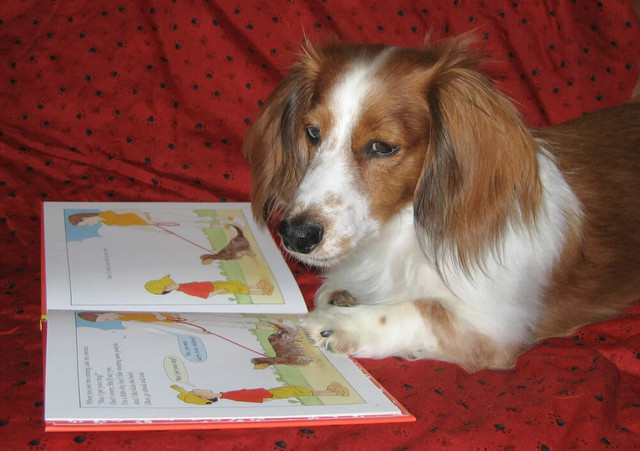
Kuranda: Tell me about your reading therapy program.
Debi Krakar: The Dog Alliance’s Bow Wow Reading Dog program is a simple but powerful approach to improving the reading skills of elementary school children. The young reader sits next to the dog and reads aloud. The dog’s handler is a retired teacher, or they have been taught how to tutor young readers. After the mass shooting at a Uvalde Texas elementary school, our dog handlers have also been educated on recognizing and responding to children experiencing trauma.
Dogs in the classroom are known to improve social and emotional learning, promote cognitive development, and positively impact reading skills.
A University of CA study found that students who read with dogs for 15-20 minutes one time per week for 8 weeks improved their reading skills by 12% to as high as 20%.
Dogs are non-judgmental, so children are less self-conscious of their low reading abilities.
A 2019 National Institutes of Health study concludes, "The presence of a dog in an educational setting seems to support concentration, attention, motivation, and relaxation, reflecting the reduction of high-stress levels which inhibit effective learning and performance.
Kuranda: Do you board any dogs at your facility?
Debi Krakar: We don’t. We have a program called Day School. We’ll have families who will drop their dogs off in the morning before 9:00 AM. We’ll train the dog all day, and the owners will come to pick up their dogs by 6:00 PM.
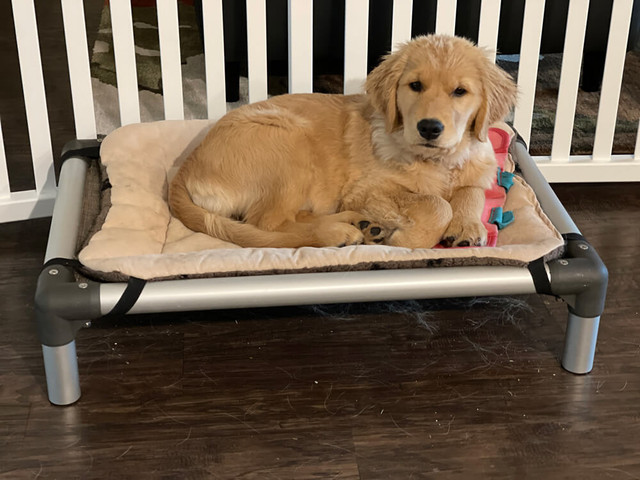
Kuranda: Tell me about your Shear Excellence Dog Grooming Academy.
Debi Krakar: We offer a 9-month training program for individuals to learn the skills needed to become professional dog groomers. We are a provider of job training for the Texas Workforce Commission. Many of our students will be there because the State is investing in re-tooling them for a new career.
Kuranda: How do you use Kuranda beds at your facility? Why do you use Kuranda beds at home?
Debi Krakar: In both places, we use them for training for the ‘go to your place’ command. They are also great for practicing ‘stay.’ I like them at home because they’re gentle on a dog’s joints and they’re not getting those rubbing sores on their elbows (Calluses). I like that they’re elevated to keep the dogs cooler in hot Texas summers. The other thing is they’re super durable. I’ve had some in my house for 10 years. On some, I’ve had to replace the fabric, but the frame is still as good as new. Dogs don’t destroy these beds, so they last forever. They’re a lot cheaper than buying a new bed every couple of years.
Kuranda: What fabric do you prefer to use with the beds? 40 oz vinyl, Ballistic Nylon, Cordura or Vinyl Weave?
Debi Krakar: I have one of each, I think. At work, we use the 40 oz vinyl because it’s so easy to clean. At home, I have one with vinyl weave which seems to be a little bit cooler.

Kuranda: Is there anything else that you would like to say?
Debi Krakar: Donations drive our ability to serve our community. Providing free service dogs for disabled veterans and first responders is a very expensive undertaking. If people want to donate or support uswe are always grateful for donations. Giving someone a service dog is like giving them a chance for a new life. It’s life-changing even lifesaving sometimes.
Also, if you see a service dog working with someone, just leave them alone. That dog is working, and that handler is trying to live their life. I know we’re all curious about service dogs but if you can refrain from interfering, just let the person be. There are places where it’s appropriate. When someone’s at the park with their service dog, by all means, ask questions, and interact with them. But if you encounter a service dog team at the grocery store and they’re shopping, most likely, they want to get home for dinner, and they don’t want to be interrupted 4 times to answer questions about their service dog. Please be respectful of a service dog handler’s privacy.
